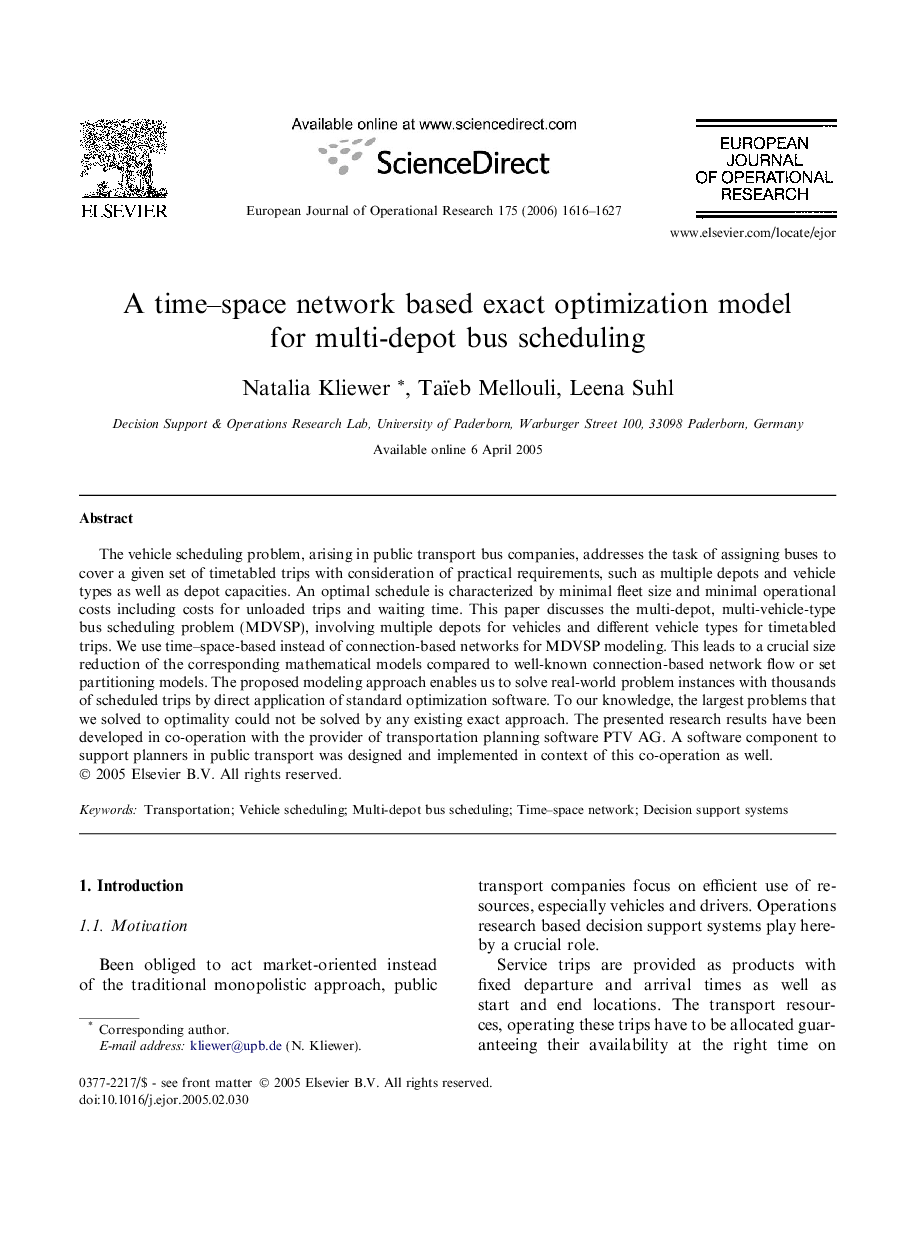| Article ID | Journal | Published Year | Pages | File Type |
|---|---|---|---|---|
| 482562 | European Journal of Operational Research | 2006 | 12 Pages |
The vehicle scheduling problem, arising in public transport bus companies, addresses the task of assigning buses to cover a given set of timetabled trips with consideration of practical requirements, such as multiple depots and vehicle types as well as depot capacities. An optimal schedule is characterized by minimal fleet size and minimal operational costs including costs for unloaded trips and waiting time. This paper discusses the multi-depot, multi-vehicle-type bus scheduling problem (MDVSP), involving multiple depots for vehicles and different vehicle types for timetabled trips. We use time–space-based instead of connection-based networks for MDVSP modeling. This leads to a crucial size reduction of the corresponding mathematical models compared to well-known connection-based network flow or set partitioning models. The proposed modeling approach enables us to solve real-world problem instances with thousands of scheduled trips by direct application of standard optimization software. To our knowledge, the largest problems that we solved to optimality could not be solved by any existing exact approach. The presented research results have been developed in co-operation with the provider of transportation planning software PTV AG. A software component to support planners in public transport was designed and implemented in context of this co-operation as well.
